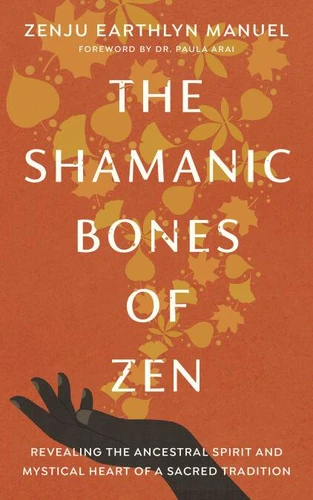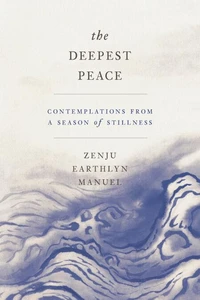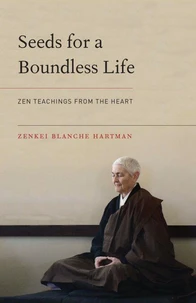The Shamanic Bones of Zen. Revealing the Ancestral Spirit and Mystical Heart of a Sacred Tradition
Par : ,Formats :
Disponible dans votre compte client Decitre ou Furet du Nord dès validation de votre commande. Le format ePub protégé est :
- Compatible avec une lecture sur My Vivlio (smartphone, tablette, ordinateur)
- Compatible avec une lecture sur liseuses Vivlio
- Pour les liseuses autres que Vivlio, vous devez utiliser le logiciel Adobe Digital Edition. Non compatible avec la lecture sur les liseuses Kindle, Remarkable et Sony
- Non compatible avec un achat hors France métropolitaine
 , qui est-ce ?
, qui est-ce ?Notre partenaire de plateforme de lecture numérique où vous retrouverez l'ensemble de vos ebooks gratuitement
Pour en savoir plus sur nos ebooks, consultez notre aide en ligne ici
- Nombre de pages192
- FormatePub
- ISBN978-0-8348-4427-8
- EAN9780834844278
- Date de parution08/02/2022
- Protection num.Adobe DRM
- Taille1 Mo
- Infos supplémentairesepub
- ÉditeurShambhala
Résumé
Conceived at the crossroads of Buddhism and indigenous earth-based practice, The Shamanic Bones of Zen explores the deep human traditions of transformation that are made possible by meditation, ceremony, ritual, dreams, and spiritual connection to one's ancestry. In The Shamanic Bones of Zen, celebrated author and Buddhist teacher Zenju Earthlyn Manuel undertakes a rich exploration of the connections between contemporary Zen practice and shamanic, or indigenous, spirituality.
Drawing on her personal journey with the black church, with African, Caribbean, and Native American ceremonial practices, and with Nichiren and Zen Buddhism, she builds a compelling case for discovering and cultivating the shamanic, or magical, elements in Buddhism-many of which have been marginalized by colonialist and modernist forces in the religion. Displaying reverence for the Zen tradition, creativity in expressing her own intuitive seeing, and profound gratitude for the guidance of spirit, Manuel models the path of a seeker unafraid to plumb the depths of her ancestry and face the totality of the present.
The book conveys guidance for readers interested in Zen practice including ritual, preparing sanctuaries, engaging in chanting practices, and deepening embodiment with ceremony. "I often felt my ancestors at ease with my practice of Zen. I felt they had led me through other traditions to this practice of ritual and ceremony, " writes Manuel. "The ancestors needed me to be still and breathe as they approached with what they had to offer my life."
Drawing on her personal journey with the black church, with African, Caribbean, and Native American ceremonial practices, and with Nichiren and Zen Buddhism, she builds a compelling case for discovering and cultivating the shamanic, or magical, elements in Buddhism-many of which have been marginalized by colonialist and modernist forces in the religion. Displaying reverence for the Zen tradition, creativity in expressing her own intuitive seeing, and profound gratitude for the guidance of spirit, Manuel models the path of a seeker unafraid to plumb the depths of her ancestry and face the totality of the present.
The book conveys guidance for readers interested in Zen practice including ritual, preparing sanctuaries, engaging in chanting practices, and deepening embodiment with ceremony. "I often felt my ancestors at ease with my practice of Zen. I felt they had led me through other traditions to this practice of ritual and ceremony, " writes Manuel. "The ancestors needed me to be still and breathe as they approached with what they had to offer my life."
Conceived at the crossroads of Buddhism and indigenous earth-based practice, The Shamanic Bones of Zen explores the deep human traditions of transformation that are made possible by meditation, ceremony, ritual, dreams, and spiritual connection to one's ancestry. In The Shamanic Bones of Zen, celebrated author and Buddhist teacher Zenju Earthlyn Manuel undertakes a rich exploration of the connections between contemporary Zen practice and shamanic, or indigenous, spirituality.
Drawing on her personal journey with the black church, with African, Caribbean, and Native American ceremonial practices, and with Nichiren and Zen Buddhism, she builds a compelling case for discovering and cultivating the shamanic, or magical, elements in Buddhism-many of which have been marginalized by colonialist and modernist forces in the religion. Displaying reverence for the Zen tradition, creativity in expressing her own intuitive seeing, and profound gratitude for the guidance of spirit, Manuel models the path of a seeker unafraid to plumb the depths of her ancestry and face the totality of the present.
The book conveys guidance for readers interested in Zen practice including ritual, preparing sanctuaries, engaging in chanting practices, and deepening embodiment with ceremony. "I often felt my ancestors at ease with my practice of Zen. I felt they had led me through other traditions to this practice of ritual and ceremony, " writes Manuel. "The ancestors needed me to be still and breathe as they approached with what they had to offer my life."
Drawing on her personal journey with the black church, with African, Caribbean, and Native American ceremonial practices, and with Nichiren and Zen Buddhism, she builds a compelling case for discovering and cultivating the shamanic, or magical, elements in Buddhism-many of which have been marginalized by colonialist and modernist forces in the religion. Displaying reverence for the Zen tradition, creativity in expressing her own intuitive seeing, and profound gratitude for the guidance of spirit, Manuel models the path of a seeker unafraid to plumb the depths of her ancestry and face the totality of the present.
The book conveys guidance for readers interested in Zen practice including ritual, preparing sanctuaries, engaging in chanting practices, and deepening embodiment with ceremony. "I often felt my ancestors at ease with my practice of Zen. I felt they had led me through other traditions to this practice of ritual and ceremony, " writes Manuel. "The ancestors needed me to be still and breathe as they approached with what they had to offer my life."





